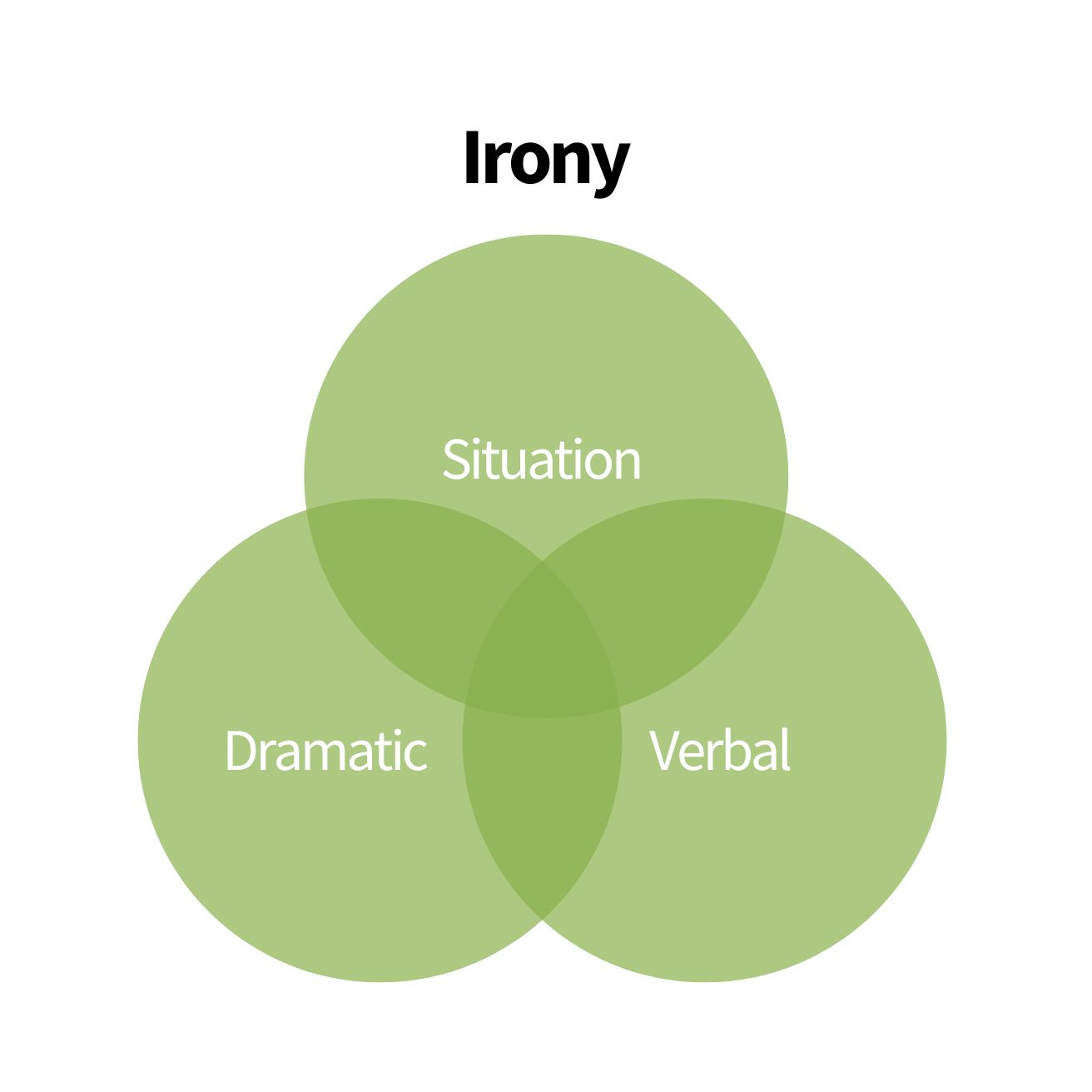Irony is a tool that is often used in novels, films, and other forms of media and is brilliant for songwriters too.
The irony is something that we encounter every day. It can be hard to define, but it is often used to describe when something happens that is the opposite of what was expected.
Three types
There are various theories on how irony works, but for me, there are three types of irony that I've seen mostly:
Situational
Dramatic
Verbal
Situational irony is a situation in which the outcome of an event is different from what was expected.
Dramatic irony is when a character's ignorance or innocence leads to his downfall or another tragedy. But the audience knows more than the character does, such as in the wonderful story by Hans Christian Andersen - The Emperor's New Clothes. We see this in politics in the world right now.
Verbal irony is a type of speech in which the speaker says one thing but means another. It can be hard to understand this type of irony because it's not always obvious that the speaker is saying something different from what they mean. Until we hit the end or the punch line.
For songwriters, it's possible to set up a lyric using any of these types of irony. But songwriters, when done correctly, may have a truly significant impact on listeners, allowing them to look at ideas from new angles.
Examples
Many well-known artists have written songs that use irony to great effect, such as Pink's "Sober”, which boils down to the main lyric, "How do I feel this good, sober?" Other well-known hits that make effective use of irony include Alanis Morissette's "Ironic" (ironically), as well as Passenger's "Let Her Go", and Carly Simon's "You're So Vain".
Christ is the epitome of what we would call restorative irony. To everyone who sees him being crucified, it looks as if he's being left by God the Father. But in reality, he is blessed. It may appear that Christ is losing his battle at the cross, but in truth, he is winning the ultimate victory. The world sees him as weak and powerless because of his gruesome death on the cross when actually, he displays great strength by rising from the dead three days later.
All throughout Scripture, there are examples of ironies that point to this greatest irony of all–that Jesus died for our sins even though He committed none Himself.
I would love to hear more Worship songs on these ideas.
Questions
Here are a few questions:
Are there any songs in your Idea Bank that could be used in your songs?
Are there any of your favorite songs that capture an idea with words that paint something else?
How about using this tool to write a Worship song?
Enjoy!
Simon



